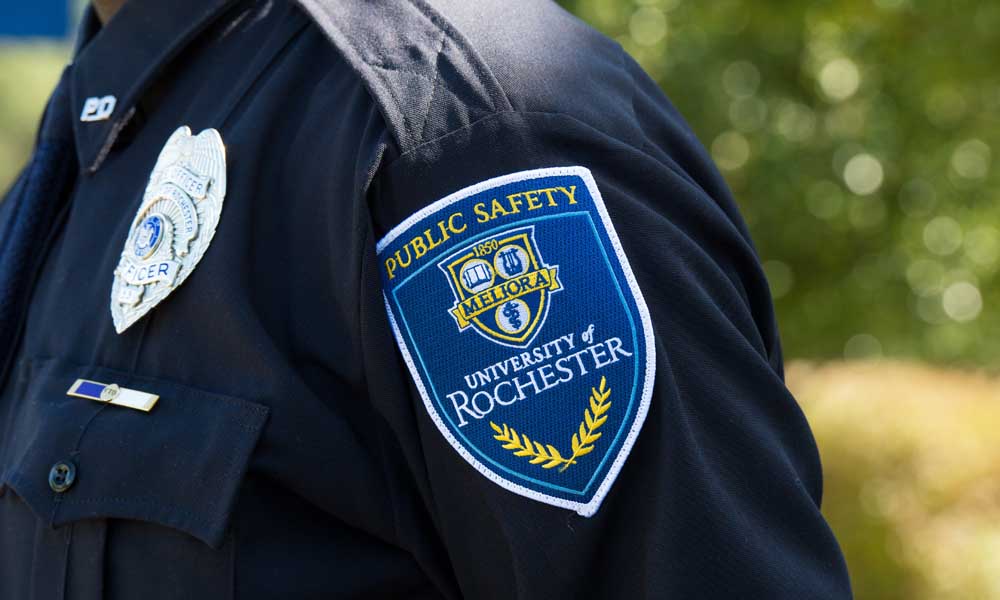University of Rochester Department of Public Safety seeks to arm more officers

Rochester NY November 4 2018 The University of Rochester Department of Public Safety is requesting that the school allow armed public safety officers on the River and Eastman campuses, a move that a group representing students of color immediately protested as “alarming and disheartening.”
UR Public Safety Chief Mark Fischer first made the proposal in May to the university’s Public Safety Review Board, which asked him to return in October once new student leadership was in place. He did so, then presented it to the Student Association Senate Oct. 22.
Security guards at the University of Rochester Medical Center were first armed in February 2017. Fischer’s proposal is to arm at least two officers on the main campus as well as one at the Eastman School of Music downtown, and to allow unrestricted access to armed supervisors.
The main rationale is that it takes too long for an armed officer to reach the River Campus from URMC — an average of six minutes, based on drills, compared to two minutes if there were already armed security on site.
The proposal notes that campus security is expected to respond to incidents in areas “adjacent” to the campus, where the Rochester Police Department expects them to have firearms. It also says that armed officers who do not regularly work on the River Campus “have shown a loss of geographic knowledge of these areas,” potentially delaying their response to a call.
“DPS officers are better trained than any area law enforcement agency and understand our university community and culture,” Fischer wrote. “These officers should be the first responders to every call for service, and especially those involving deadly weapons where a rapid armed response is needed for life preservation.”
UR is one of only three schools in the Association of American Universities that does not allow armed officers across its campus; the other two are in New York City and are not sworn peace officer agencies. All four-year SUNY institutions allow armed officers as well.
Nonetheless the issue is a delicate one, as the university in the last several years has acknowledged the effect of racial bias that black students in particular face. The school created a Presidential Commission on Race and Diversity co-chaired by Richard Feldman, now the university’s interim president.
Fischer’s proposal drew an immediate rebuke from the Minority Students’ Advisory Board, which was upset not to have been consulted before the Student Association Senate saw the presentation.
“Over the past three years, the university has given us the impression that it is finally beginning to understand the significance of including voices of students of color into these types of decisions,” Board President Tara Eagan wrote. “To be frank, we will not stand for this.”
The board had an emergency meeting last weekend to discuss its response. Eagan could not be reached for comment beyond her letter.
The Public Safety Review Board itself was created in 2016 for the specific purpose of reviewing public safety-related issues for racial bias, among other things. The board asked Fischer to run the proposal by both the Student Association Senate and other student groups, UR spokeswoman Sara Miller said, then to report back at the end of November.
It is Feldman who ultimately will decide on whether to arm additional officers. Miller said both he and the review board want to hear feedback from stakeholders before reaching a decision.
Democrat & Chronicle



